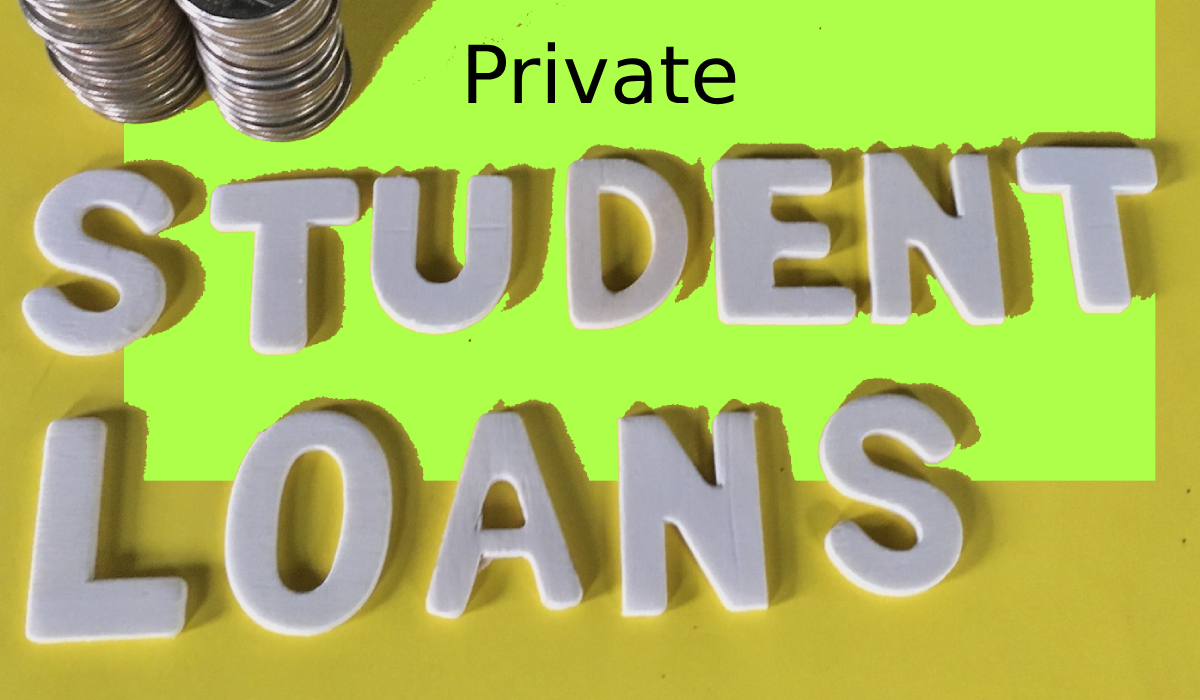After you’ve used subsidized and unsubsidized federal student loans, private student loans might help you cover the rest of your education expenses. Private student loans are available from banks, credit unions, and online lenders; unlike federal student loans for undergraduates, they need a credit check. Check out our list of top lenders and how to compare loan possibilities.

- Est APR = 4.89-9.04%
- MIn Credit Score = 680
- No fees.
4
editorial team. We score based on factors
that are helpful for consumers, such as
how it affects credit scores, the rates and
fees charged, the customer experience,
and responsible lending practices.
Best Private Student Loans in 2024
- Ascent: Best Student Loans With Flexible Repayment Terms
- LendKey: Best Student Loans with low interest rates
- Rhode Island Student Loan Authority offers low maximum APR loans, while SoFi offers additional benefits for members.
- A.M. Money offers the best student loans with no co-signer, while College Ave specializes in multi-year loans.
- Funding U: Best Student Loans for High GPA Students
- PNC Bank: Best Student Loans With Autopay Discounts
- Citizens Bank Offers Best Student Loans for Existing Customers]
Tips for Comparing Private Student Loans
Do your research before taking out a private student loan. Experts advocate borrowing little more than you are expected to earn in your first year out of college. This can help you avoid having excessive monthly costs once you finish school.
When evaluating each lender and loan, consider the following factors:
Loan amount: Loan amounts vary based on the lender and the degree you are seeking. Some lenders may finance up to 100% of your education expenses, but using college savings, grants, and scholarships can help lower the amount you need to borrow.
Loan costs. The main factor influencing student loan costs is the loan’s annual percentage rate (APR), which varies depending on your credit. Most private student loans do not have application or origination costs, but it is important to check for additional fees to determine the loan’s overall cost.
Repayment period: Loan terms commonly range between five and twenty years. Shorter loan durations require larger payments but help you get out of debt faster. A longer repayment term may result in more manageable installments, but will cost more in interest over time.
Borrowers benefit: Lenders may provide borrowers with various advantages, such as interest rate savings for using autopay. Lenders may also offer deferred payments till after you leave school and suspend payments if you suffer financial difficulties.
Cosigner’s release: One of the greatest methods to qualify for a low-interest private student loan is to apply with a creditworthy co-signer. Some lenders also have a co-signer release policy, which removes your co-signer from the loan after you make a particular number of timely payments.
Related: Essential Guide to Apply For Federal Student Loans
Average Student Loan Rates July 2024
How do student loans work?
Student loans can be used to cover a variety of school-related expenses, such as tuition, room and board, books and supplies, transportation, and other necessities. Once your loan application is approved, the funds are paid to the school to cover the remaining debt. You may usually postpone repayment until after you graduate, although interest may begin to accrue immediately.
Methodology for Getting Private Student Loans
We ranked the top 12 lenders by volume based on 15 data factors including interest rates, fees, loan periods, hardship choices, application process, and eligibility. We selected the eight greatest to display based on those who received three stars or higher.
The weighting for each category is as follows:
- Hardship Options: 30%
- Application process: 16%.
- Loan terms: 14 percent.
- Interest rates: 13 percent.
- Eligibility: 14%.
- Fees: 13%
Specific characteristics considered within each category included the number of months of forbearance available, economic hardship repayment options available in addition to traditional forbearance, graduation perks such as cash-back rewards, discounts, time to default, disclosure of credit score and income requirements, and other factors.
Lenders who offered interest rates below 10% received the highest scores, as did those who offered more than the standard 12 months of forbearance, made their loans available to non-US citizens, offered interest rate discounts greater than the standard 0.25% for automatic payments, offered multiple loan terms up to 15 years, and charged minimal fees.
In some circumstances, lenders received partial points, and a maximum of 3% of the final score was left to editorial discretion based on the quality of consumer-friendly features provided.
Our Loans Rating & Review Methodology explains how Forbes Advisor ranks lenders and our editorial process.

- Est APR = 4.89-9.04%
- MIn Credit Score = 680
- No fees.
4
editorial team. We score based on factors
that are helpful for consumers, such as
how it affects credit scores, the rates and
fees charged, the customer experience,
and responsible lending practices.


 Read More
Read More 




